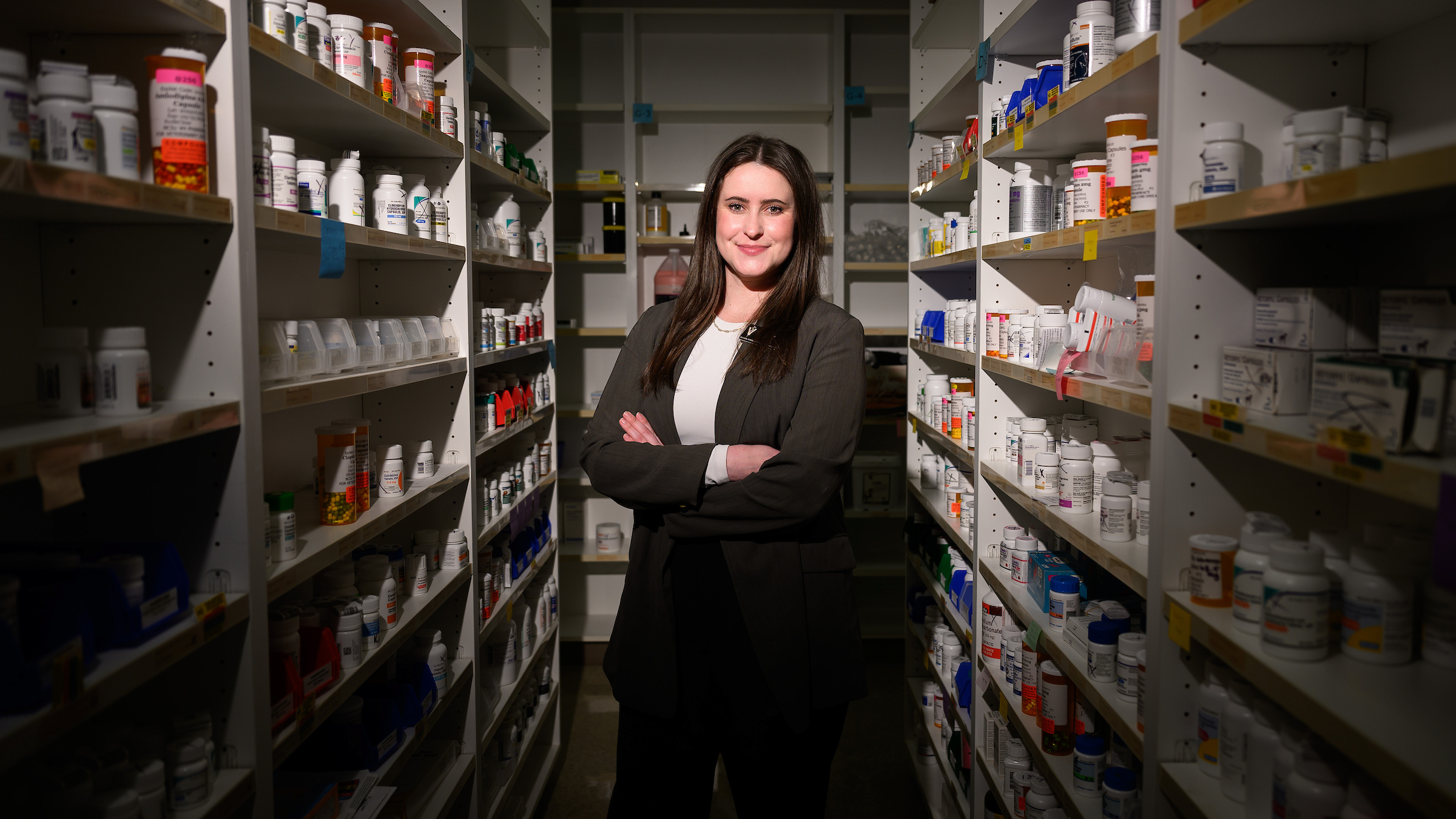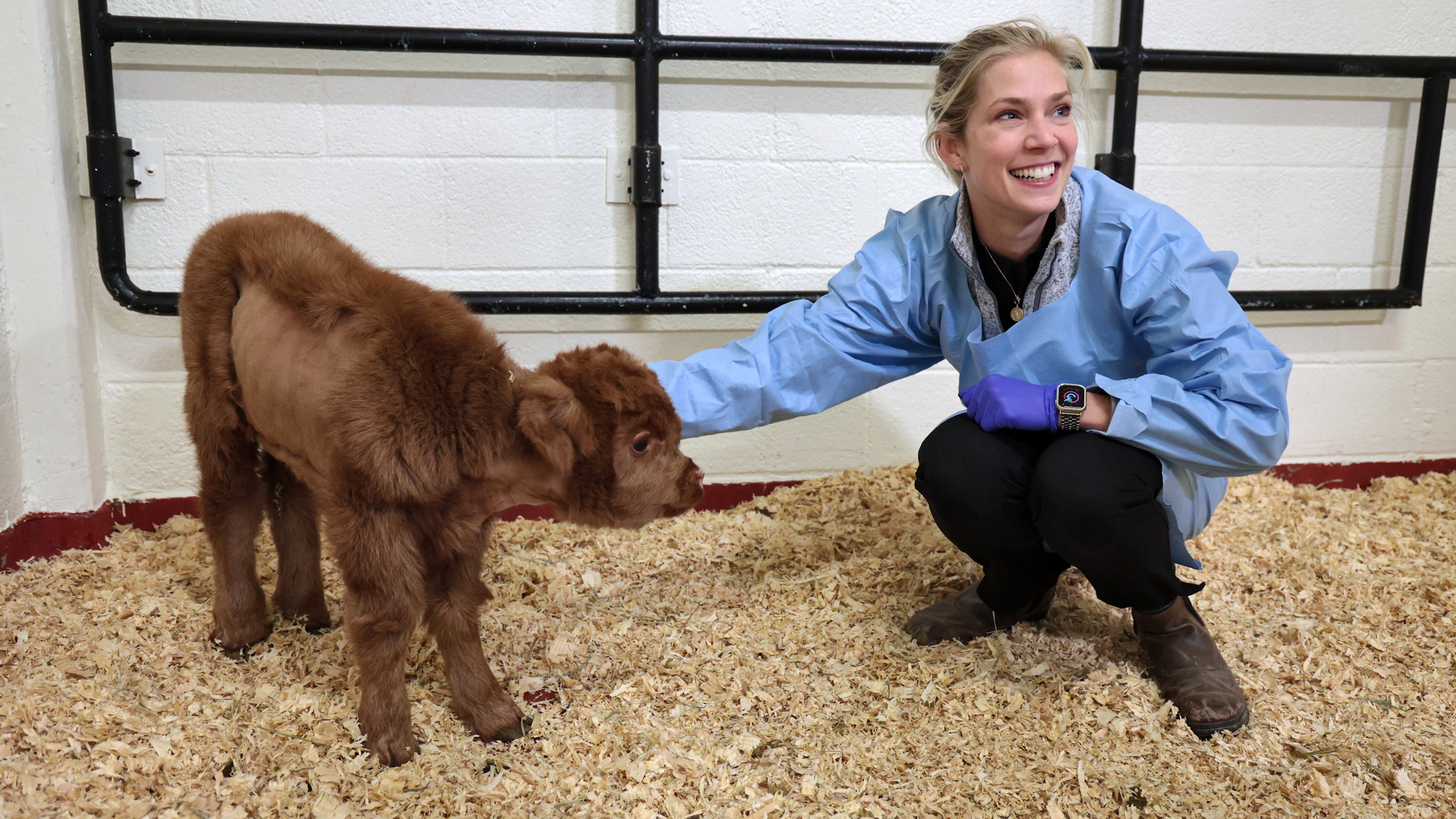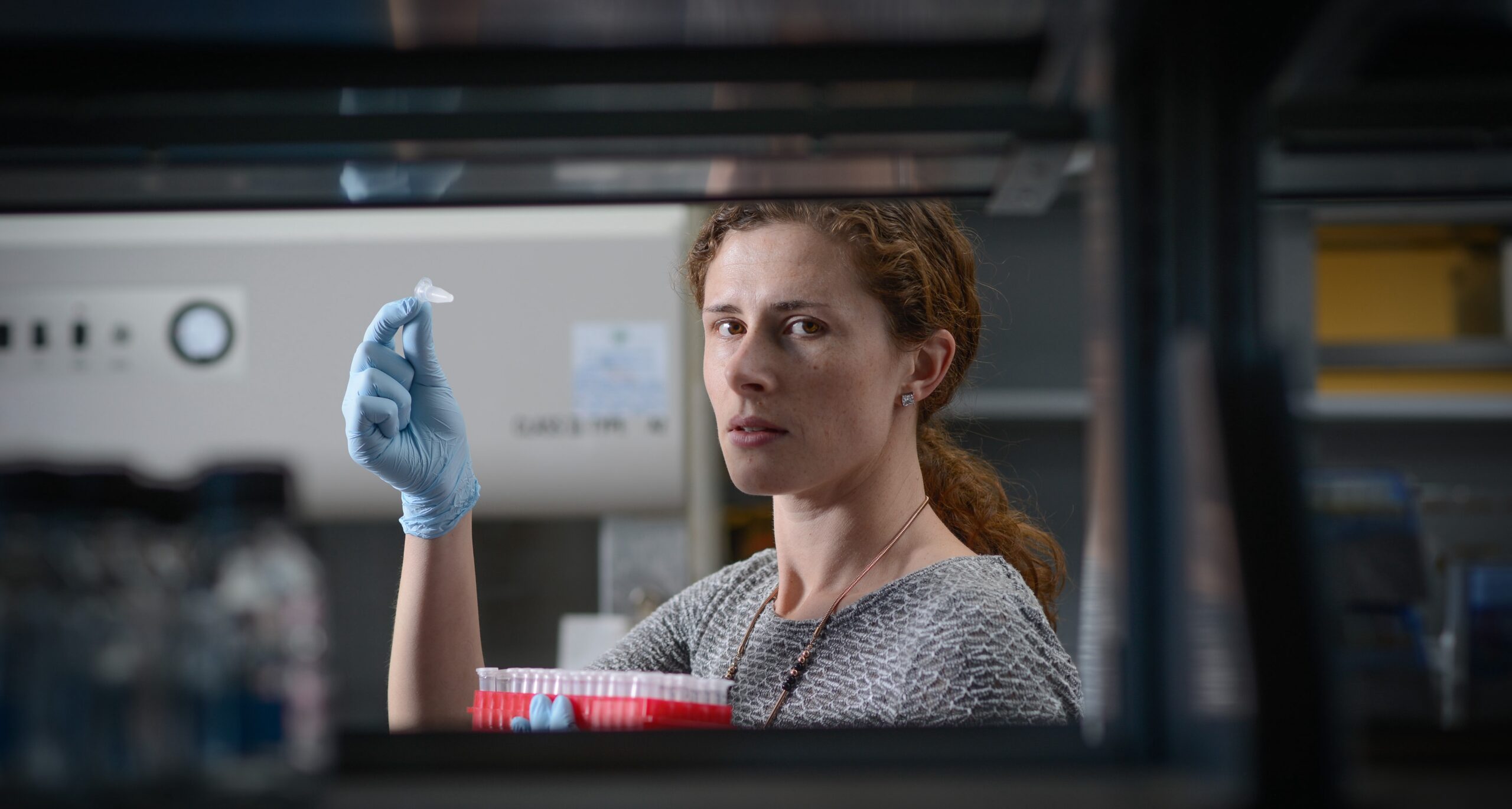CVM Face Mask Brigade has Veterinary Hospital Support All Sewn Up
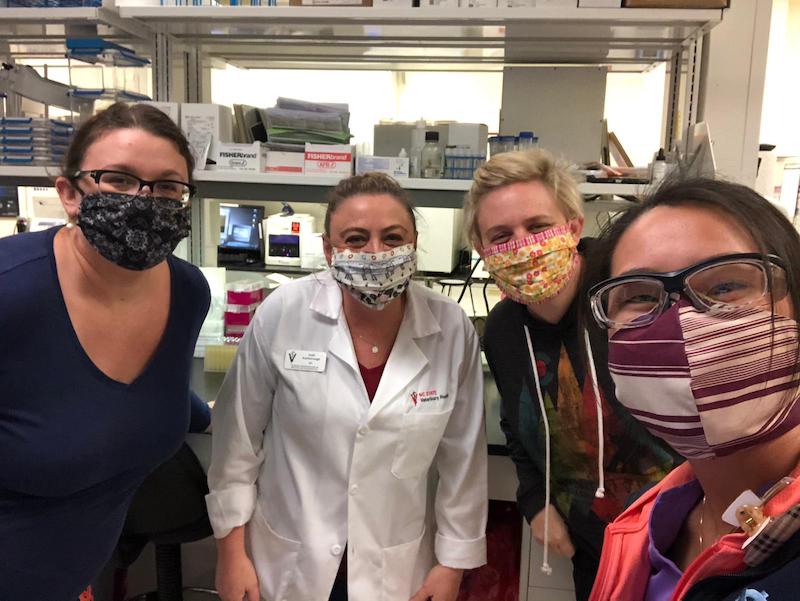
Lysa Posner is not good at sewing, but she’s fantastic at planning.
So when the professor of anesthesiology at the NC State College of Veterinary (CVM) was learning of COVID-19’s rapid spread, she immediately got to work.
“Like everyone else, I was watching the news showing that human hospitals don’t have enough personal protective equipment. It just seemed obvious to me that if they didn’t have enough, then veterinary medicine is definitely not going to have enough,” says Posner. “And anything we did have, we should be giving to human hospitals.”
Predicting a shortage of face masks for medical care professionals, Posner remembered several CVM and NC State Veterinary Hospital colleagues who are serious sewers — “I don’t think sewing is easy,” Posner says. “Maybe suturing, but not sewing.” — and reached out via email on March 19.
She asked a simple question: How hard would it be to sew cloth masks for essential veterinary hospital workers. The reply: Easy.
The CVM’s Face Mask Brigade was born. Posner was hoping that 10 people would be interested in helping; she got 40 within the first day of the email.
Over just a few weeks, volunteers across the CVM — ranging from veterinary technicians and clinicians to faculty, administrative leadership and their families — have created nearly 400 cotton cloth face masks for the group of CVM faculty and staff working on emergency cases.
The masks, often colorful with fanciful decorations like cows and flowers, fill the gap as other masks are widely donated by the veterinary hospital to human medical facilities. While surgeons must use surgical masks when conducting surgery on animals, these cloth masks, reusable after laundering and often sporting pockets for disposable filters, are a vital layer of protection against virus transmission.
“In a time when we feel like there’s not much we can do, I think this has helped,” says Posner. “It’s amazing. In times of need, people like our face mask volunteers just get stuff done.”
The Face Mask Brigade is more than just sewers. It has quickly become a smoothly run network. While the general public cannot drop off masks at the hospital, brigade volunteers have offered their personal home mailboxes as drop-off sites for cloth donations used to create masks that are then brought on campus by employees. Many in the CVM community have spent their free time at home making masks with their families and sharing photos.
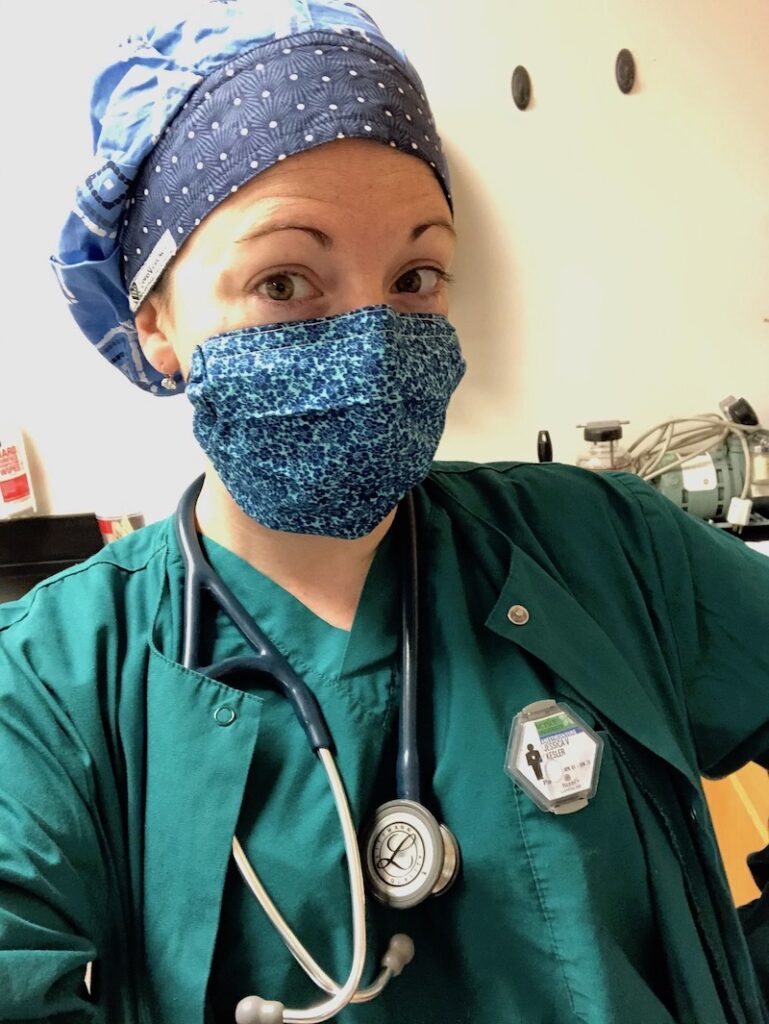
As soon as someone at the hospital notices a decrease in the number of cloth masks available, the Face Mask Brigade is likely finishing up a new batch.
“The Face Mask Brigade epitomizes the teamwork within the CVM and the NC State Veterinary Hospital,” says Director of Veterinary Medical Services Steve Marks, an associate dean and clinical professor of critical care and internal medicine. “This team effort has helped keep our personnel and animal-owning community safe.”
It’s a labor of love for Cheryl Kata, a medical support technician who previously worked with Posner as an anesthesia technician.
Kata has worked during snowstorms and at a practice when it lost power after a hurricane. She has worked extra hours so others could go home.
“I have never not been on the front line before and felt very lost,” says Kata, who has been working from home during the pandemic. “I wanted to do something to allow others to do their jobs and help our patients.
“If I can save a life from my sewing machine, then let’s rock out a bunch of masks and save as many lives both human and animal as I can.”
Abby Sharpnack, an anesthesia scheduler, has no sewing skills at all, but has devoted her time to collecting masks and distributing them to the many hospital services. When Posner gets masks requests, Sharpnack makes sure they get to where they are needed.
She has seen the smiles from hospital staff and clinicians as they sift through the masks and pick ones that seem tailor made for them, with their favorite colors or imagery that reflects their personalities.
“These masks have brought everyone together,” says Sharpnack. “Most people now pass you in the hallway and have some sort of reaction to what type of mask you are wearing. I know it is making a positive impact on all of us.”
There is no end goal. Posner and the team continue to produce and deliver masks almost daily so workers can have multiple masks. As rules governing face mask use in public evolve, the Face Mask Brigade will likely stay busy, collecting cloth, elastic and financial donations that go directly to buying materials.
If I can save a life from my sewing machine, then let’s rock out a bunch of masks and save as many lives both human and animal as I can. — Cheryl Kata
Those interested in helping in some way may email FaceMaskBrigade@gmail.com.
The spirit buoying the Face Mask Brigade is the same one that brought Posner to NC State in the first place.
“I have always told everyone that we have the best veterinary school in the country,” says Posner, who was not trained at the college and has worked at the CVM for 15 years. “But the thing that actually got me here was that I had never seen a faculty, staff and a hospital that had so much collegiality. It was different here.
“And I think this is an exact presentation of what that looks like. It is not a faculty initiative or a staff initiative or an administrative initiative. People just raised their hand and said, ‘How can I help?’”
~Jordan Bartel/NC State Veterinary Medicine
- Categories:
